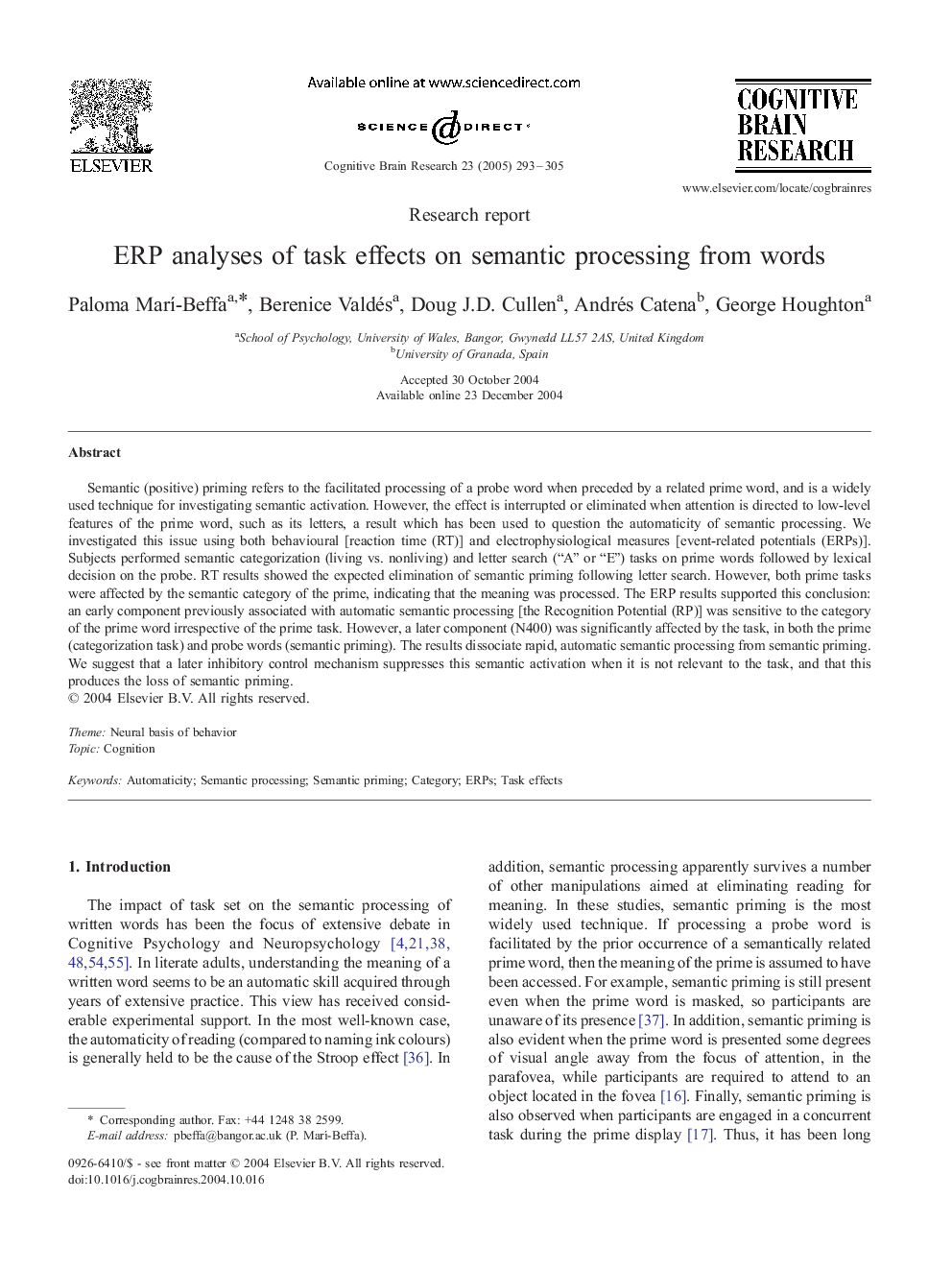| کد مقاله | کد نشریه | سال انتشار | مقاله انگلیسی | نسخه تمام متن |
|---|---|---|---|---|
| 9408150 | 1613040 | 2005 | 13 صفحه PDF | دانلود رایگان |
عنوان انگلیسی مقاله ISI
ERP analyses of task effects on semantic processing from words
دانلود مقاله + سفارش ترجمه
دانلود مقاله ISI انگلیسی
رایگان برای ایرانیان
کلمات کلیدی
موضوعات مرتبط
علوم زیستی و بیوفناوری
علم عصب شناسی
علوم اعصاب رفتاری
پیش نمایش صفحه اول مقاله

چکیده انگلیسی
Semantic (positive) priming refers to the facilitated processing of a probe word when preceded by a related prime word, and is a widely used technique for investigating semantic activation. However, the effect is interrupted or eliminated when attention is directed to low-level features of the prime word, such as its letters, a result which has been used to question the automaticity of semantic processing. We investigated this issue using both behavioural [reaction time (RT)] and electrophysiological measures [event-related potentials (ERPs)]. Subjects performed semantic categorization (living vs. nonliving) and letter search (“A” or “E”) tasks on prime words followed by lexical decision on the probe. RT results showed the expected elimination of semantic priming following letter search. However, both prime tasks were affected by the semantic category of the prime, indicating that the meaning was processed. The ERP results supported this conclusion: an early component previously associated with automatic semantic processing [the Recognition Potential (RP)] was sensitive to the category of the prime word irrespective of the prime task. However, a later component (N400) was significantly affected by the task, in both the prime (categorization task) and probe words (semantic priming). The results dissociate rapid, automatic semantic processing from semantic priming. We suggest that a later inhibitory control mechanism suppresses this semantic activation when it is not relevant to the task, and that this produces the loss of semantic priming.
ناشر
Database: Elsevier - ScienceDirect (ساینس دایرکت)
Journal: Cognitive Brain Research - Volume 23, Issues 2â3, May 2005, Pages 293-305
Journal: Cognitive Brain Research - Volume 23, Issues 2â3, May 2005, Pages 293-305
نویسندگان
Paloma MarÃ-Beffa, Berenice Valdés, Doug J.D. Cullen, Andrés Catena, George Houghton,